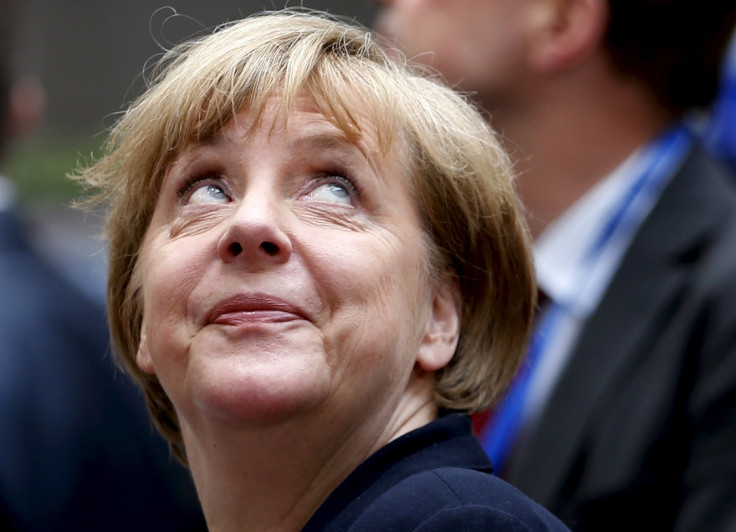Greece debt crisis: Merkel faces revolt by party MPs as bailout showdown looms

German Chancellor Angela Merkel is facing a rebellion by lawmakers in her conservative party ahead of a crucial Bundestag vote on the third bailout deal for Greece.
Some backbenchers from Merkel's Christian Democrats (CDU) and their Christian Social Union (CSU) allies are against the €86bn (£61bn; $95bn) package, saying far too much has been spent to prop up Athens.
I can argue with full conviction, partly because I haven't taken this decision lightly myself... that the correct thing to do is to vote for this.
They are also concerned that Greece may receive significant debt restructuring down the line, costing German taxpayers money.
But the bailout is still expected to be ratified by MPs in the vote on 19 August, as the Social Democrats (SPD) and the opposition Greens are in favour of pushing it through in the 631-seat Bundestag.
The German parliament's approval is required to disburse the first instalment of €13bn to Greece by 20 August, when the country has a debt repayment due to the European Central Bank.
Easing dissent
German tabloid Bild reported that a total of 56 MPs from Merkel's CDU party and their CSU allies voted against the fresh rescue deal for Greece in a test ballot on 18 August, while four MPs abstained.
That was fewer than the 60 No votes and five abstentions in last month's Bundestag vote on opening bailout negotiations with Athens.
Earlier this week, German Finance Minister Wolfgang Schäuble urged policymakers to back the bailout and praised Greece for agreeing to German demands.
"I can argue with full conviction, partly because I haven't taken this decision lightly myself ... that the correct thing to do is to vote for this," Schäuble was quoted as saying by the Guardian newspaper.
Greece has agreed to enact a series of painful reforms, such as cutting pensions, raising taxes and liberalising the labour market, in return for the latest rescue package.
On 18 August, the Greek government said it had agreed to sell 14 regional airports to German company Fraport-Slentel for €1.2bn as part of its first major privatisation move since the signing of the bailout deal.
© Copyright IBTimes 2025. All rights reserved.





















